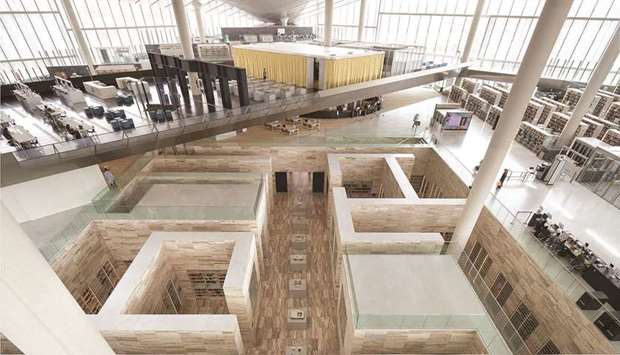Ancient manuscripts and heritage objects were put under the spotlight when Qatar National Library (QNL) played host to a special six-day event. The ‘Scientific Applications in Cultural Heritage Forum’, launched online on January 25 attracted a sold-out audience who enjoyed a series of lectures and practical sessions led by renowned historians and conservation experts from several fields of interest.
The principal focus of the event was on pigments and dyes used in manuscripts and heritage items. Audience members also learned about the most important spectroscopic techniques for non-invasive and non-destructive analysis of precious documents and objects, which has an impact on fundamental knowledge, interpretation, and conservation.
The forum also featured lectures on Arabic and Persian pigments and how they were made; the various dyestuffs used for Arabic manuscripts, extraction methods and dyeing processes; and conservation issues and deterioration processes encountered with pigments and dyes found in Islamic manuscripts.
Dr Hamda al-Sulaiti, secretary-general of the Qatari National Commission for Education, Culture and Science, and Stephane Ipert, director of distinctive collections at QNL, each delivered opening day speeches.
Among the experts who gave talks were Amelie Couvrat Desvergnes, paper and book researcher and conservator, Dr Mandana Barkeshli, conservation scientist and principal fellow at the University of Melbourne, Dr Antonino Cosentino, cultural heritage scientist, Maxim Nasra, book conservation specialist at QNL and Dr Sadra Zekrgoo, materials conservation scientist at the University of Melbourne.
Dr al-Sulaiti said, “Owing to the significance of the issues and techniques discussed and their impact on heritage conservation, the first edition of the forum drew a huge crowd of over 600 specialists and enthusiasts from all around the world, who enjoyed our delivery of the lectures in both English and Arabic. I am looking forward to our continued co-operation on other important initiatives that contribute to heritage preservation in the Arab region and the Middle East.”
“It was delightful to engage in an immersive intellectual exchange with an enthusiastic audience around such fascinating topics, and I believe all of those participating got a great deal out of it. It is a new success for the IFLA PAC regional centre at QNL to organise this remarkable forum, which despite being virtual successfully attracted a large audience from all over the world,” added, Nasra.
The forum also featured lectures on Arabic and Persian pigments and how they were made; the various dyestuffs used for Arabic manuscripts, extraction methods and dyeing processes; and conservation issues and deterioration processes encountered with pigments and dyes found in Islamic manuscripts.
Dr Hamda al-Sulaiti, secretary-general of the Qatari National Commission for Education, Culture and Science, and Stephane Ipert, director of distinctive collections at QNL, each delivered opening day speeches.
Among the experts who gave talks were Amelie Couvrat Desvergnes, paper and book researcher and conservator, Dr Mandana Barkeshli, conservation scientist and principal fellow at the University of Melbourne, Dr Antonino Cosentino, cultural heritage scientist, Maxim Nasra, book conservation specialist at QNL and Dr Sadra Zekrgoo, materials conservation scientist at the University of Melbourne.
Dr al-Sulaiti said, “Owing to the significance of the issues and techniques discussed and their impact on heritage conservation, the first edition of the forum drew a huge crowd of over 600 specialists and enthusiasts from all around the world, who enjoyed our delivery of the lectures in both English and Arabic. I am looking forward to our continued co-operation on other important initiatives that contribute to heritage preservation in the Arab region and the Middle East.”
“It was delightful to engage in an immersive intellectual exchange with an enthusiastic audience around such fascinating topics, and I believe all of those participating got a great deal out of it. It is a new success for the IFLA PAC regional centre at QNL to organise this remarkable forum, which despite being virtual successfully attracted a large audience from all over the world,” added, Nasra.

